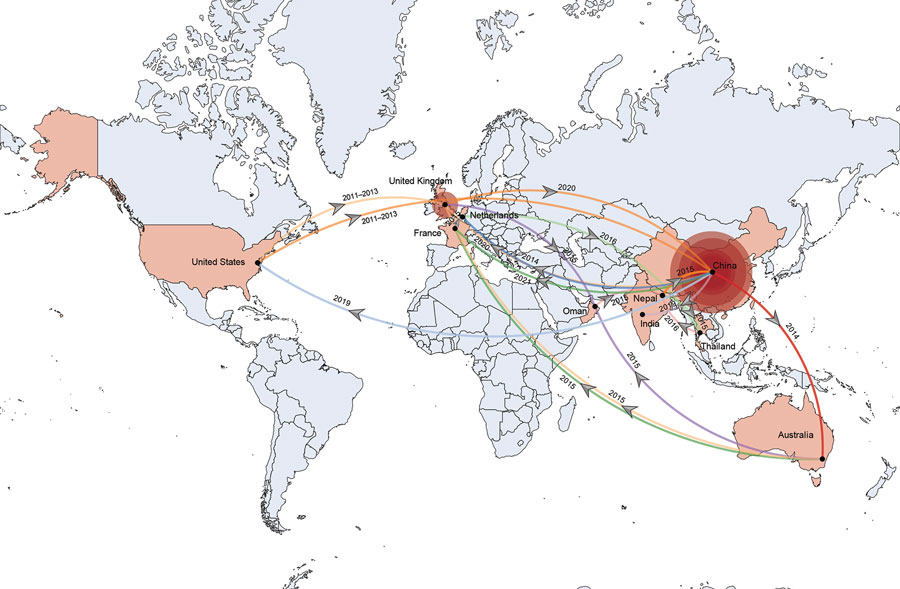Volume 29, Number 11—November 2023
Research
Global Phylogeography and Genomic Epidemiology of Carbapenem-Resistant blaOXA-232–Carrying Klebsiella pneumoniae Sequence Type 15 Lineage
Figure 5

Figure 5. Temporal and spatial transmission trajectory of global blaOXA-232–carrying carbapenem-resistant Klebsiella pneumoniae. Coral-colored countries on map indicate geographic regions where blaOXA-232 has occurred; arrows show dates and direction of transmission. The blaOXA-232–carrying isolate originated in the United States, initially expanded to the United Kingdom and China, then spread to the rest of the world, with China as its central focus. Red circles represent major outbreak regions in the United Kingdom and China; size of the red circles corresponds to the number of strains analyzed in each country.
Page created: September 05, 2023
Page updated: October 23, 2023
Page reviewed: October 23, 2023
The conclusions, findings, and opinions expressed by authors contributing to this journal do not necessarily reflect the official position of the U.S. Department of Health and Human Services, the Public Health Service, the Centers for Disease Control and Prevention, or the authors' affiliated institutions. Use of trade names is for identification only and does not imply endorsement by any of the groups named above.